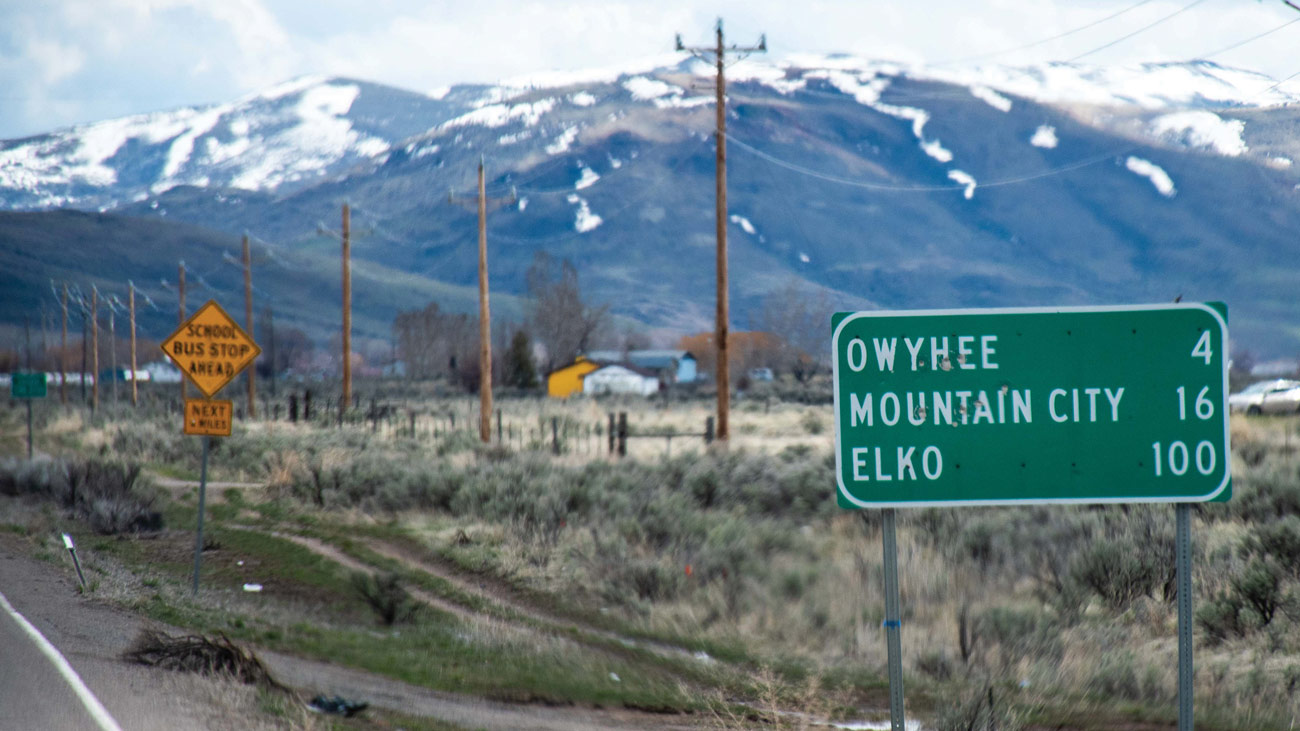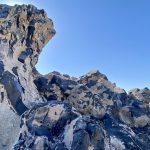The caldera of an extinct volcano has been a garden of medicines and foods for the Numu/Nuwu (Northern Paiute) and Newe (Western Shoshone) peoples and their non-human kin since time immemorial.
They call the caldera Peehee Mu’Huh (Rotten Moon), in remembrance of a massacre in 1865, when the 1st Nevada Cavalry slaughtered entire families in their sleep. The mining industry and government call this place “Thacker Pass,” after the general who led the massacre.
The US government’s 2021 decision to permit Lithium Americas to mine at Thacker Pass violated Indigenous people’s rights, Human Rights Watch and the American Civil Liberties Union said in a 138-page February 2025 report, “The Land of Our People, Forever.” The 18,000-acre project is now under construction and will extract lithium from one of the world’s largest known deposits.
Under Trump, the push is coming from a lens of “national security,” rather than the Biden-era tactic of labelling it a “solution to climate change.” Even though California’s Imperial Valley has been declared to meet 100% of US lithium needs and 40% of global needs, the premise is still that a domestic source of lithium is required to prevent reliance on foreign sources. The false narrative of “domestic sources” increases with the fact Lithium Americas is a Canadian mining company. A similar disconnect exists at Chi’chil Biłdagoteel, where sacred land is being consumed under the guise of “national security” by Rio Tinto and BHP (British, Australian) with the largest shareholder being the Peoples’ Republic of China.
“The Land of Our People, Forever” found that the Bureau of Land Management permitted the Thacker Pass mine without obtaining the free, prior, and informed consent of Indigenous people. This is in violation of their rights to religion, culture, and their ancestral lands under international human rights law.
People of Red Mountain state, “Lithium Nevada [a Lithium Americas subsidiary] feigned consultation with our Tribes,” timing its official letters when the tribes were coping with the first wave of losses from COVID-19. “Lithium Nevada considered our lack of response to be consent. This gave them an advantage in the permitting process.” People of Red Mountain maintain this does not constitute proper consultation as required by Article 19 of the United Nations Declaration on the Rights of Indigenous Peoples. Legal appeals have so far failed to stop the construction of the mine.
Locked out of our home
Gary McKinney, a member of the Shoshone-Piaute Tribes of Duck Valley, is the head scout for the American Indian Movement in Nevada, and the descendant of one of the three survivors of Thacker’s massacre. He explains the area is significant for cultural practices, hunting, trading, and plant harvesting. “There are natural gardens and springs that give life to those different medicines. Our people were known as root diggers, or earth diggers.” From buffalo to golden eagles, many came to this place for the abundance, he says. “Life was born there.”
From buffalo to golden eagles, many came to this place for the abundance.
To this day, tribal members still get out there as much as they can, McKinney says, to hunt and harvest their food. There are thousands of documented artifacts and cultural sites in the area, including petroglyphs marking coming-of-age ceremonies and culturally significant places, but “these were not brought up in any litigation,” he says. “We tried to intervene so that we could present those things, but they locked us out of the argument.”
McKinney shares how his grandmother continued to pray and bring tobacco there until the company started construction. Even though entry is not formally forbidden, “some of the non-native security hired by Lithium Americas kind of put restraints, vocally, by noticing my grandma driving up. They’ll drive down in their white trucks and get out and tell my grandma ‘road’s closed, can’t go up there.’ So that put fear in her – ‘I’m not supposed to be going up there anymore. I don’t feel good over there anymore.’ And that’s how she’s been. You have a house and then somebody goes and locks it up and you can’t go into that room any more.”
Violence against land and people
Rose Curtis, a member of the Fort McDermitt Shoshone Tribe, worries about the mine and its potential impact on her community. She works at Fort McDermitt Wellness Center and organizes an annual walk to grow awareness about sexual assault against children, and is outspoken about the risks “man camps” pose to the safety and wellbeing of women and children in the area. “A lot of our women, even the Elders, some of them are scared. They live alone – and the highway is just right there.” The mine and “workers’ hub” are directly between the McDermitt Tribe community and Winnemucca, where tribe members must commute for medical appointments and groceries.
Curtis describes the lack of adequate law enforcement and support services on the reservation, which makes it difficult to address issues of sexual assault, domestic violence, and human trafficking. Much of the area is without cell service, with emergency dispatch “six hours away,” says Curtis. “The ambulance is seventy miles from us to get help.”
Curtis explains there’s a toll on the mental health of her community, “when these people come in and do what they want, basically.” She says there is an active FBI case involving sexual assault from five years ago, “but they haven’t even picked up the guy yet. They know who it is.”
The increase of violence against women and children goes hand in hand with violence against the land. The ACLU reports these concerns “are backed by documented instances of other extractive industry operations on or near Indigenous land that have been associated with increased violence against women [and] girls.” Watershed Sentinel asked Lithium Americas what they are doing to prevent this; they declined an on-record interview.
Curtis says she doesn’t “see the tribal council getting involved in these kind of things. You don’t see them sticking up for their people … and that’s the sad part.” She explains, “They got billions of dollars and they’re going to just go with it. And some believe, well, you might as well take their money and get what you need now – because they’re going to do it anyways.”
McKinney says there are at least five other tribes with deep ties to the Caldera, and “the blood that spilled out there belongs to family members” of all five tribes. He explains that while “community benefit agreements” have been reached with two tribes, “what the corporation does is divide the community there. The tribal leadership seems afraid to speak about it to the public.”
The massacre at Peehee Mu’huh turned the land into a burial ground, and it remains a place for mourning and communing with ancestors. McKinney warns against the current fast-tracking of permits. “If we’re not there to sink our teeth in, then it’s erasure, another form of genocide.”
Odette Auger (Sagamok Anishnawbek) is an award-winning independent journalist and storyteller living on Klahoose territory in the Salish Sea. Follow her work at authory.com/OdetteAuger.
This story is third in a series on critical minerals mining on Indigenous lands in the US. It was published with support from the Institute for Journalism & Natural Resources.




